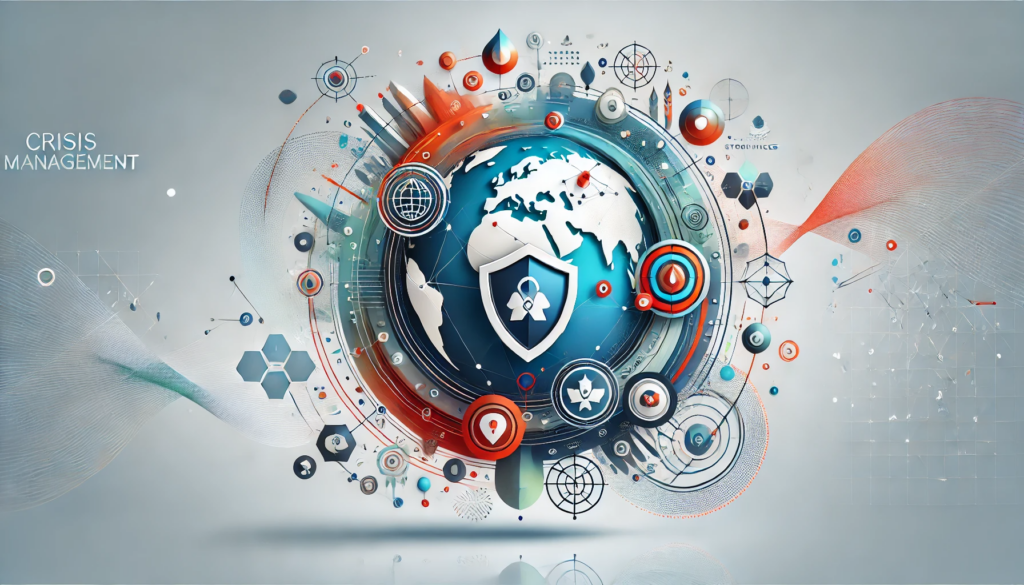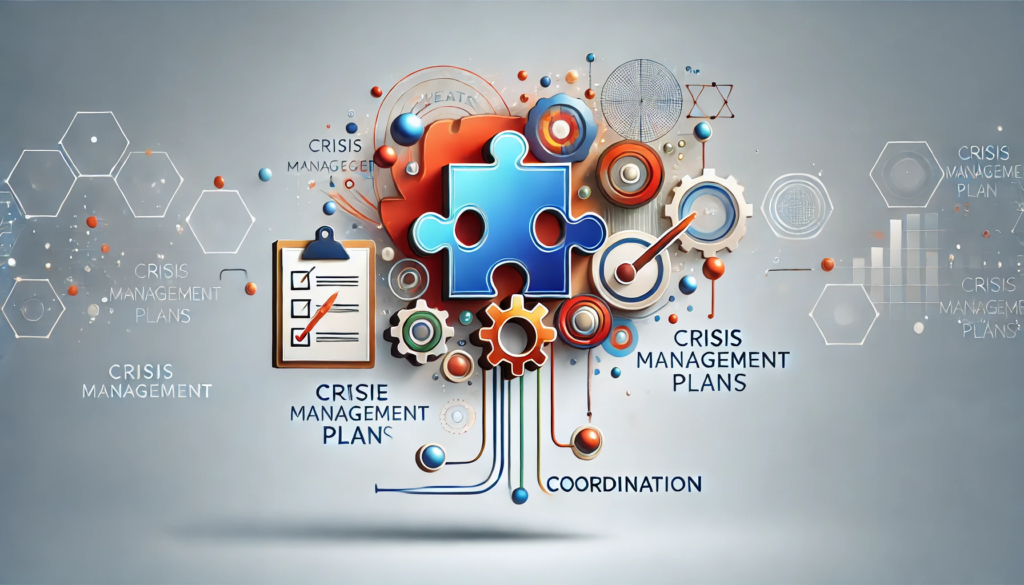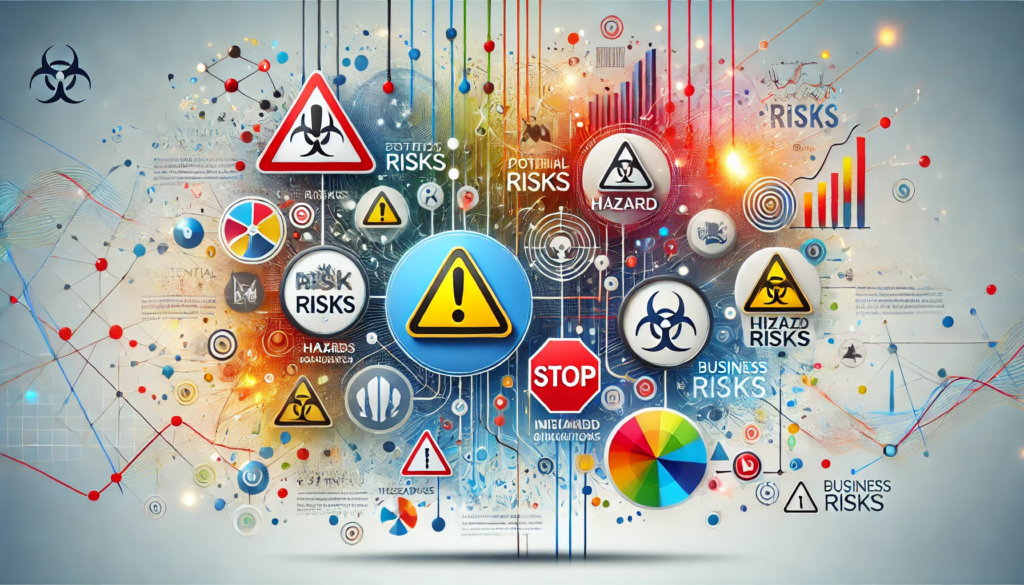In the unpredictable world of business, crisis management stands as the indispensable shield safeguarding your company during tumultuous times. Imagine having a blueprint that not only guides every decision you make during emergencies but also steers your communication and recovery efforts—ensuring you navigate through crises with precision and poise.
More than just a protective measure, effective crisis management is pivotal in preserving your business’s reputation, building trust, and curtailing potential financial setbacks. By embracing a robust crisis management plan, you not only keep your operations running smoothly during disruptions but also set the stage for rapid recovery. The real beauty of crisis management, however, lies in its capacity to transform challenges into opportunities for growth and resilience, fortifying your business against future upheavals.
Eager to learn how to turn adversities into advantages? Dive deeper into our comprehensive guide to becoming truly crisis-ready and discover strategies that ensure your business not only survives but thrives.
Understanding Crisis Management
Understanding crisis management is crucial for any business’s survival. It’s about being prepared for different types of crises that can hit your business.
From natural disasters to financial issues, knowing how to manage such events can save your company’s reputation and bottom line.
What is Crisis Management?
Let’s explore the world of crisis management, a key component in safeguarding your organization from critical events that could cause significant disruptions.

Understanding the importance of crisis management, you’ll realize that it’s not just about how to handle a crisis when it occurs, but also about employing successful crisis management strategies before a crisis hits.
- A crisis management plan in place is your first line of defense. It’s a well-structured strategy to mitigate the impact of the crisis, protect your stakeholders, and ensure that your business can continue operations.
- As the crisis manager, your role is crucial. You need to understand the crisis plan, execute it effectively, and make necessary adjustments as situations evolve.
- The plan needs to include clear guidelines on decision-making processes, communication methods, and recovery steps to reduce the disruption to your business.
Types of Crises
Now that we’ve established the importance of having a crisis management plan, let’s look at the various types of crises your organization could potentially face. Crises can range from natural disasters and technological failures to financial crises and reputational damage. Each type of crisis requires a unique approach, so understanding the nature of the crisis is key to a successful crisis response.
Your crisis team must conduct a thorough risk assessment to anticipate potential crises and their impacts. This is a critical aspect of event management, as it enables you to create tailored crisis management plans and strategies. Remember, the more prepared you are, the less impact a crisis may have on your business operations.

The objective is to manage any crisis successfully, minimizing damage and disruption. But not all crises can be prevented. In such cases, your crisis management plan should focus on containment and recovery, mitigating the impact of the crisis as much as possible.
Ultimately, how you handle a crisis can make or break your organization’s reputation. Hence, it’s crucial to have a robust crisis management plan in place, ensuring you’re ready to respond effectively when the unexpected happens.
The Importance of Crisis Management
Understanding the importance of crisis management is crucial for your business. It’s more than just saving face; it’s about protecting your company’s reputation, minimizing financial loss, and ensuring continuity in your operations.
Let’s explore why these factors make crisis management a non-negotiable aspect for any business.
Protecting Reputation and Trust
Effective crisis management safeguards your organization’s hard-earned reputation and reinforces trust among stakeholders, even amidst challenging circumstances. One key aspect of good crisis management is having a robust crisis management plan. Your crisis management team should develop a comprehensive crisis response plan that focuses on risk management and ensures business continuity.

Effective crisis management strategies include proactive reputation management and trust restoration.
Communication plans play a pivotal role in disseminating accurate information and managing public perceptions.
A crisis management plan is instrumental in guiding your organization through a crisis and mitigating potential damages.
Your strategy should prioritize clear communication plans, which are crucial in maintaining transparency with stakeholders. This helps restore confidence and trust in your leadership and organization. Remember, your goal is to protect your organization’s reputation while ensuring minimal disruption to your operations.
Minimizing Financial Loss
In addition to safeguarding your reputation, effective crisis management can also play a significant role in minimizing financial losses during unexpected situations. When a crisis hits, having a comprehensive crisis management plan in place can reduce the risk of severe financial detriment. Your crisis management team, with their swift and informed actions, can manage the crisis significantly reducing financial losses.
The key to this is your crisis response plan. This is the backbone of your crisis management efforts, outlining the steps to take in the event of a crisis. With a solid plan, you’re able to respond immediately and effectively to the situation at hand, potentially saving your business a significant amount of money.

Moreover, a crisis management platform can facilitate communication within your team, allowing for efficient decision-making and problem-solving. This platform can also help to control the spread of misinformation, which could otherwise lead to more financial damage.
Ensuring Business Continuity
Crisis management plays a pivotal role in ensuring your business remains operational during emergencies and recovers swiftly post-crisis. It’s the crisis management team’s duty to create a crisis management plan that outlines how your organization will respond to a crisis, maintain business continuity, and recover post-crisis.

Your crisis management plan should include:
- A detailed response strategy for potential crises
- A communication protocol for stakeholders
- A recovery and business continuity plan
Crisis management is crucial to manage a crisis effectively and efficiently. You have to consider several factors when developing a crisis management plan. The first step is to identify potential crises that could disrupt your business operations. Then, develop crisis response strategies to address these potential crises. Implement a crisis communication plan to keep stakeholders informed during a crisis.
Managing a crisis can be challenging, but with a robust crisis management plan, you can ensure business continuity and swift recovery.
Key Components of a Crisis Management Plan
Now, let’s focus on the key components of a robust crisis management plan.
You’ll need to craft effective crisis response procedures.
Develop clear communication strategies.
Engage in thorough risk assessment and scenario planning.
Each of these elements plays a crucial role in preparing your business to face and overcome potential crises.
Crisis Response Procedures
Let’s explore the essential components of a crisis management plan, focusing first on the detailed crisis response procedures, which clarify the roles and responsibilities of team members during different types of crises.

A well-prepared response plan can make a significant difference in how your organization handles an unexpected event.
Your crisis management team’s response is the first line of defense against any incident that could damage your reputation. This team should be well-versed in incident management, ready to tackle everything from social media crises to a full-blown cyber attack.
Effective response to such events requires the following elements:
- Clear Roles and Responsibilities: Everyone on your team should know exactly what they’re responsible for during a crisis.
- Diverse Set of Skills: Your team should cover a range of expertise, from tech skills for handling cyber threats to public relations skills for managing communication channels.
- Quick Decision-Making: Crises require swift action. Your team needs to make decisions quickly and effectively to minimize damage.
Communication Strategies
Often overlooked, yet critically important, having a well-crafted communication strategy is an essential component of any crisis management plan. Your plan should include protocols for media engagement, an action plan for dealing with a crisis, and a comprehensive communication strategy. This is where your crisis management team’s expertise comes into play.

The role of the crisis management team is to navigate a crisis efficiently. They’re tasked with understanding the elements of the crisis, crafting messages that accurately convey the situation, and communicating these effectively to all stakeholders. They’re the ones who create a comprehensive crisis management plan, which includes, but isn’t limited to, effective communication strategies.
When dealing with a crisis, it’s crucial to have a clear, concise, and direct communication plan. This ensures that everyone involved is on the same page and working towards the same goal – resolving the crisis. Proper communication helps to prevent misunderstandings, misinterpretations, and misinformation, all of which can exacerbate an already tense situation.
Risk Assessment and Scenario Planning
Understanding the potential risks your business might face is critical in crafting an effective crisis management plan. This is where risk assessment and scenario planning come into play. It’s a core aspect of crisis management and aims to mitigate the likelihood of a full-blown crisis.

Your crisis management team’s job is to identify possible threats, assess their potential impact on business processes, and develop response strategies. This process should be a part of your crisis management plan, as it helps in understanding and managing risks proactively.
Here are some key steps involved in risk assessment and scenario planning:
- Identifying potential threats that could disrupt your business operations
- Evaluating the potential impact of these threats on your business
- Developing and implementing strategies to mitigate the identified risks
The goal of crisis management is to prevent businesses from experiencing a crisis. However, if your business has already experienced a crisis, these tools can help prevent a recurrence.
Risk assessment and scenario planning aren’t just management tools, they’re vital for all businesses to have a crisis management plan in place. They provide a roadmap for navigating through unforeseen challenges, reducing the impact on your business.
Building a Crisis Management Team
As you move forward in creating a robust crisis management plan, it’s crucial to build a strong crisis management team.

This team should consist of individuals from various departments, each bringing their unique expertise to the table.
Selecting Team Members
Building a robust crisis management team requires careful selection of members, ensuring a mix of cross-functional representation and specific expertise. The members of the crisis management team are the backbone of the plan, each bringing a unique set of skills and insights. Your crisis management team’s composition can play a significant role in determining the plan’s success or failure.

Here are the factors to consider when selecting team members:
- Expertise: Choose individuals with specific skills relevant to crisis management. This could include communication, risk assessment, or operation management skills.
- Cross-functional representation: Ensure the team includes members from various departments. This provides a comprehensive perspective on every aspect of the plan.
- Adaptability: Crisis management vs routine management requires a different set of skills. Your team members should be adaptable and able to think on their feet.
Training and Drills
To keep your crisis management team in top form, consistent training and regular drills are pivotal in ensuring they can handle real-life crises effectively. Your crisis management team’s ability to respond swiftly and efficiently to a business’s crisis is directly linked to the level of regular training they receive. This training should cover different stages of a crisis, whether it’s a corporate crisis or specific scenarios like product recalls.
Training should also involve crisis simulations. These mock events of a crisis give your team a chance to practice their response in a controlled environment. It can reveal strengths and weaknesses in your management platform and plan.

Consider implementing a table like the one below into your training program:
| Training Aspect | Benefits |
|---|---|
| Crisis Stages Training | Understanding of different crisis phases |
| Crisis Simulations | Practicing response, finding potential issues |
| Regular Drills | Keeping the team prepared and alert |
The plan also needs to be flexible, adjusting as your business grows and changes. In essence, your team’s training should be a dynamic, evolving process that keeps them ready to handle any crisis your business might face. Remember, preparation is the key to effective crisis management.
Post-Crisis Recovery
After the storm has passed, it’s essential to reflect on your company’s response to the crisis.
You’ll need to assess the effectiveness of your actions, identify any gaps, and implement changes to strengthen your future response.
This process, known as post-crisis recovery, is a crucial step in crisis management.
Assessing the Response
When the dust settles following a crisis, it’s crucial you take time to assess the effectiveness of your response and identify areas for improvement. This is a key aspect of crisis management, ensuring that even if a crisis could have been handled better, lessons are learned for the future. Your crisis management team’s role doesn’t end with managing the business’s crisis; it extends to post-crisis evaluation.
Every crisis, even multiple crises, provides an invaluable opportunity to learn and improve. Remember, every second counts during a crisis, and the more efficiently you respond to a crisis when it happens, the better your business will fare.
Assessing the response involves:
- Reviewing the sequence of events: Consider how the crisis unfolded and how your team responded. Did they follow the plan? Where did they excel or stumble?
- Evaluating communication effectiveness: Did your team communicate effectively internally and externally? Was the necessary information shared promptly and correctly?
- Analyzing impact: What was the impact on your business, stakeholders, and reputation?
Crises are inevitable, but with thorough post-crisis analysis, you’ll be better prepared for the next one. And remember, following a crisis, reflection and learning are just as crucial as the initial response.
Implementing Changes
Learning from a crisis, you must promptly implement changes to your crisis management plan, using the insights gained to improve response strategies and minimize future risks. It’s a vital step towards achieving post-crisis recovery and ensuring the health of your organization in the long run.

In this phase, you’re required to analyze the effectiveness of your response and identify areas that need improvement. You’ll have to reassess your crisis management strategies, adjust your protocols, and even redesign your team roles if necessary. Remember, the goal is to reinforce your plan so that you’re better prepared for future crises.
To assist you in implementing changes, here is a table summarizing three key areas to focus on:
| Area of Focus | Why It’s Important | Action Steps |
|---|---|---|
| Analyzing Response | Understand what worked and what didn’t | Identify strengths and weaknesses in crisis response |
| Adjusting Protocols | Enhance effectiveness of crisis management | Modify protocols based on lessons learned |
| Redesigning Roles | Ensure the right people are in the right roles | Assign roles based on skills and experience in crisis management |


